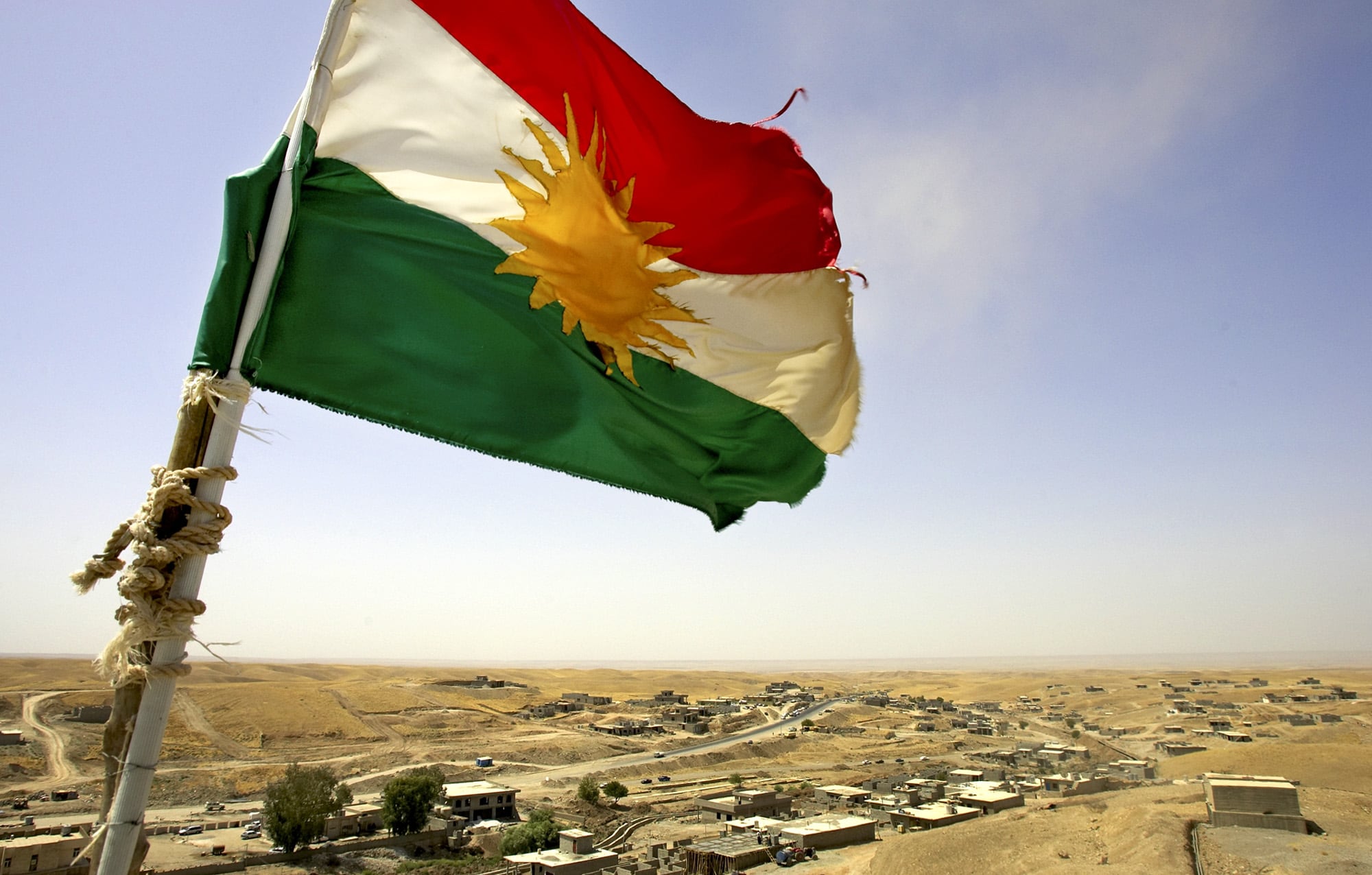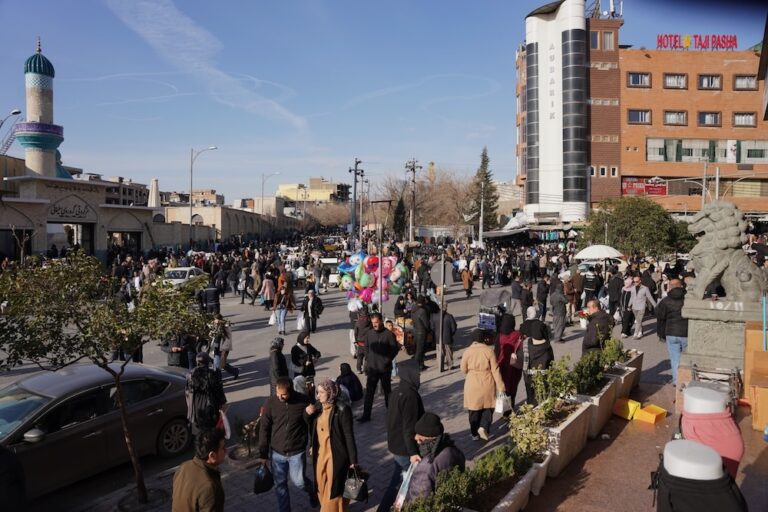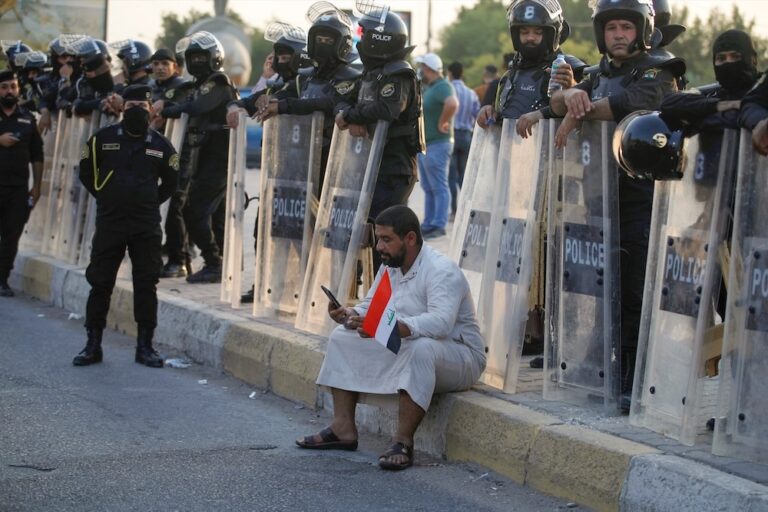The media in Iraqi Kurdistan are vulnerable whenever internal political tensions flare. Amid impunity for anti-press attacks, including murder and arson, journalists say they must self-censor on topics like religion, social inequality, and corruption associated with powerful officials.
“You son of a dog, if you publish that magazine tomorrow, I’ll entomb your head in your dog father’s grave.”
The magazine was Rayel, an independent monthly publication in Kurdistan.
The “son of a dog” was 32-year-old Rayel editor-in-chief Kawa Garmyane, who had published several reports alleging corruption among Kurdish politicians, particularly those in the powerful political party, Patriotic Union of Kurdistan (PUK).
The speaker, according to a recording of the phone conversation published on YouTube in July 2012, was Mahmoud Sangawi, a member of the PUK and an army general.
Eighteen months later, Garmyane was dead, shot outside his home in Kalar, south of the city of Sulaymaniyah, on December 5, 2013.
According to news reports, Sangawi was the prime suspect. He was arrested for the murder in January 2014, but quickly released on lack of evidence. He maintains his innocence. A rank-and-file member of the PUK has been arrested and pleaded guilty to the murder, but Garmanye’s family says it is impossible for an average citizen to have carried out the attack singlehandedly and that the real criminal or the mastermind is still at large.
Sangawi has not denied the authenticity of the “son of a dog” phone call, in which he used vulgar language to threaten Garmyane, because, in his own words, the magazine had published a critical article and picture of him in an earlier edition.
Immediately after the killing, some journalists and human rights defenders expressed doubt that Garmyane’s murder would be solved and the mastermind brought to justice. On December 20, 2013, protesters across Kurdistan carried banners saying, “Not only the killer. Who’s behind the killer?” and “We all know who the killer is.”
Celebrated Kurdish poet Abdulla Pashew published a statement harshly criticizing the Kurdish Regional Government. “Kawa [Garmyane] was martyred in a country where there are no system of governance, no institutions, no courts, no constitution, and no laws. That is why we should not expect the trial of the real criminals.”
“High-ranking PUK officials did this,” shouted a crying Shireen Amin, the wife of Garmyane, to a crowd of journalists and other Kurds gathered in front of his home in December 2013. “I beg all of you, members of the media, to not accept this injustice. Kawa was also a brother to you.” She gave birth to their first child only 17 days after her husband’s death.
Lack of law enforcement breeds self-censorship
Iraqi Kurdistan, with a population of around 5 million, straddles three major Iraqi provinces—Erbil, Duhok, and Sulaymaniyah—and borders Iran, Turkey, and Syria. The territory boasts its own flag and national anthem, and the Kurdistan Regional Government (KRG) enjoys near-total control over the territory’s internal and foreign affairs. Ruling power has been shared by the PUK and the Kurdistan Democratic Party (KDP) since 2003, although recently a third party, Gorran (Change), has made waves by attracting significant votes.
While much of post-war Iraq was ravaged by car bombs, suicide attacks, and religious extremism, Kurdistan largely escaped such violence. The economy is booming, thanks largely to huge oil and natural gas reserves. However, below a surface that appears calm when compared with much of the Middle East, political tensions sometimes run high, and this is when the media are most vulnerable. Local journalists say Kurdistan is rife with nepotism and corruption; many Kurds accuse their leaders of using oil money to enrich themselves instead of building a vibrant democracy and economy for all. In smaller cities, such as Kalar and Halabja, people complain about a lack of basic services, such as paved roads, jobs, and electricity.
Garmyane’s murder was the most recent high-profile attack on a journalist in the Kurdish territory, but it was not an isolated case. Over the past few years, the nonprofit advocacy group Metro Center to Defend Journalists, based in Sulaymaniyah, has recorded in detail nearly 700 attacks on journalists, including threats, harassment, beatings, detentions, intimidation, and arson. Most of the attacks have gone unpunished.



